Blogs
Practical Insights & Latest Happenings
Don’t miss out on the latest trends and info on SEO, search engines, social media, and more.
November 2, 2023
mothasim
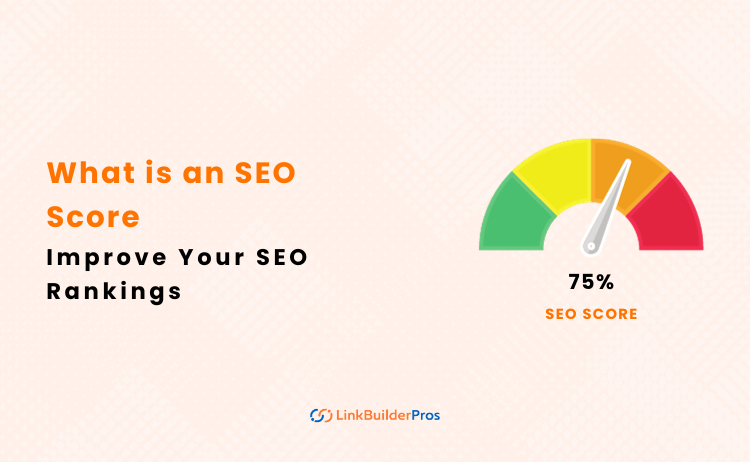
What is an SEO score? In short, it’s a way to measure how well your website is optimized for Google by considering factors like content quality, keyword use, backlinks, and technical aspects.
That means the higher the score, the better your visibility will be in search results.
There are different tools, plugins, and site analyzers to check your SEO score, such as Moz, SEMrush, Ahrefs, and Google’s PageSpeed Insights. But the results will slightly differ because every SEO tool uses its unique algorithm and methodology to calculate SEO scores. You better use a combination of those tools and manual assessment for a comprehensive view.
Let’s dig deeper and know more about SEO scores.
An SEO score measures the quality of your website’s technical aspects and user friendliness and how they impact your SEO.
There are three main criteria used the assess health and overall performance of a website:
Technical SEO is about optimizing your site’s technical aspects to improve its search engine performance. It includes elements like site speed, mobile-friendliness, indexability, crawlability, HTTPS security, structured data, XML sitemaps, canonicalization, server considerations, URL structure, and more.
A technical SEO score measures how easily search engine bots can crawl, access and index your site. In fact, on-page and off-page SEO can’t save a site from technical errors.
On-page SEO involves optimizing individual web pages through keyword research, high-quality content, meta tags, headers, URL structure, and internal linking. An on-page SEO score calculates if every web page on your site follows on-page SEO’s best practices and helps identify areas for improvement.
Off-page SEO focuses on optimizing factors outside your website, such as link building, social media promotion, influencer outreach, and online reputation management. This is necessary to enhance your authority, credibility, and visibility.
We will know more about these factors later in the article.
Most SEO scores are usually graded from 0 to 100. A high score means your website is well-optimized for Google and your SEO campaign is a success so far.
So, what is considered a good SEO score?
Along with an overall assessment of your SEO, you will also get insights on other SEO elements such as how well your images and meta title tags are optimized. You can use these metrics to focus on improving the weaker areas of the site while maintaining its strengths.
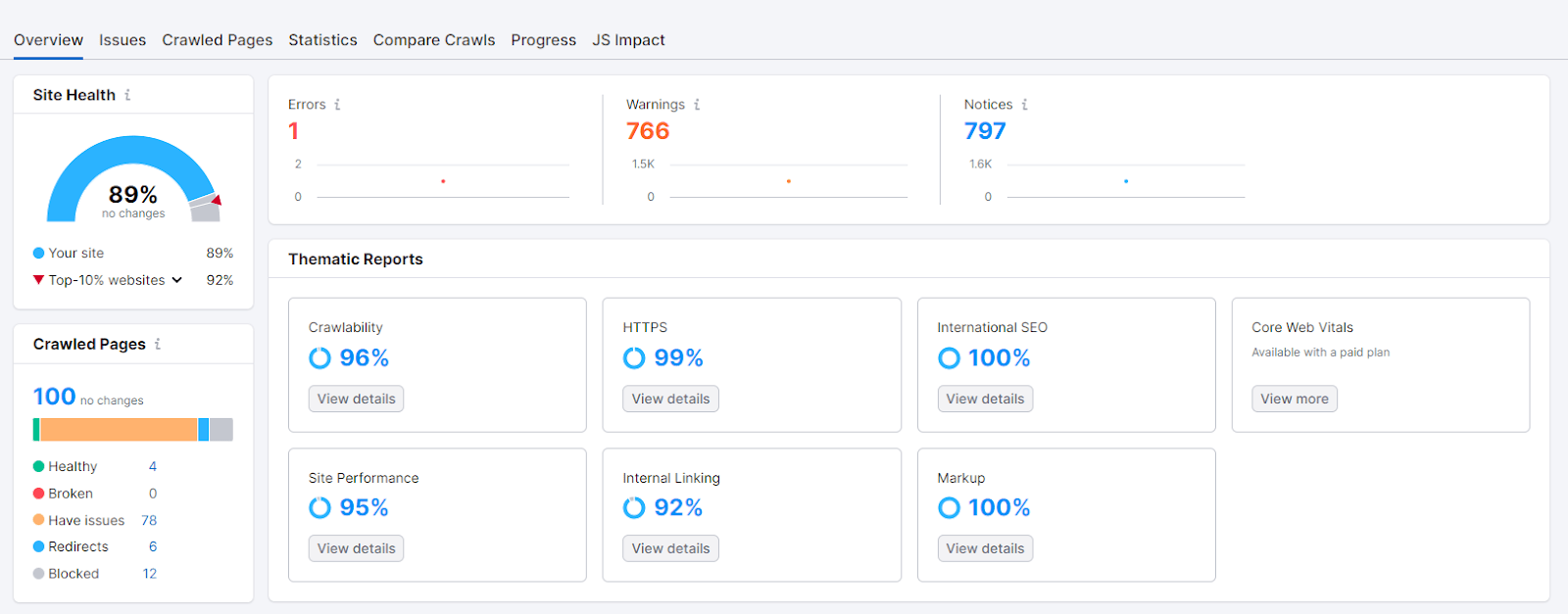
SEMRush’s free SEO score checker is very popular in the SEO community. It offers various functionalities for competitive research, keyword research, site auditing, backlink analysis, and more to help businesses and digital marketers optimize their online presence. The SEO Score feature can be found in their site audit report.
The report provides information on –
| Packages | Price |
| Pro | $119.95 per month |
| Guru | $229.5 per month |
| Business | $449.95 per month |
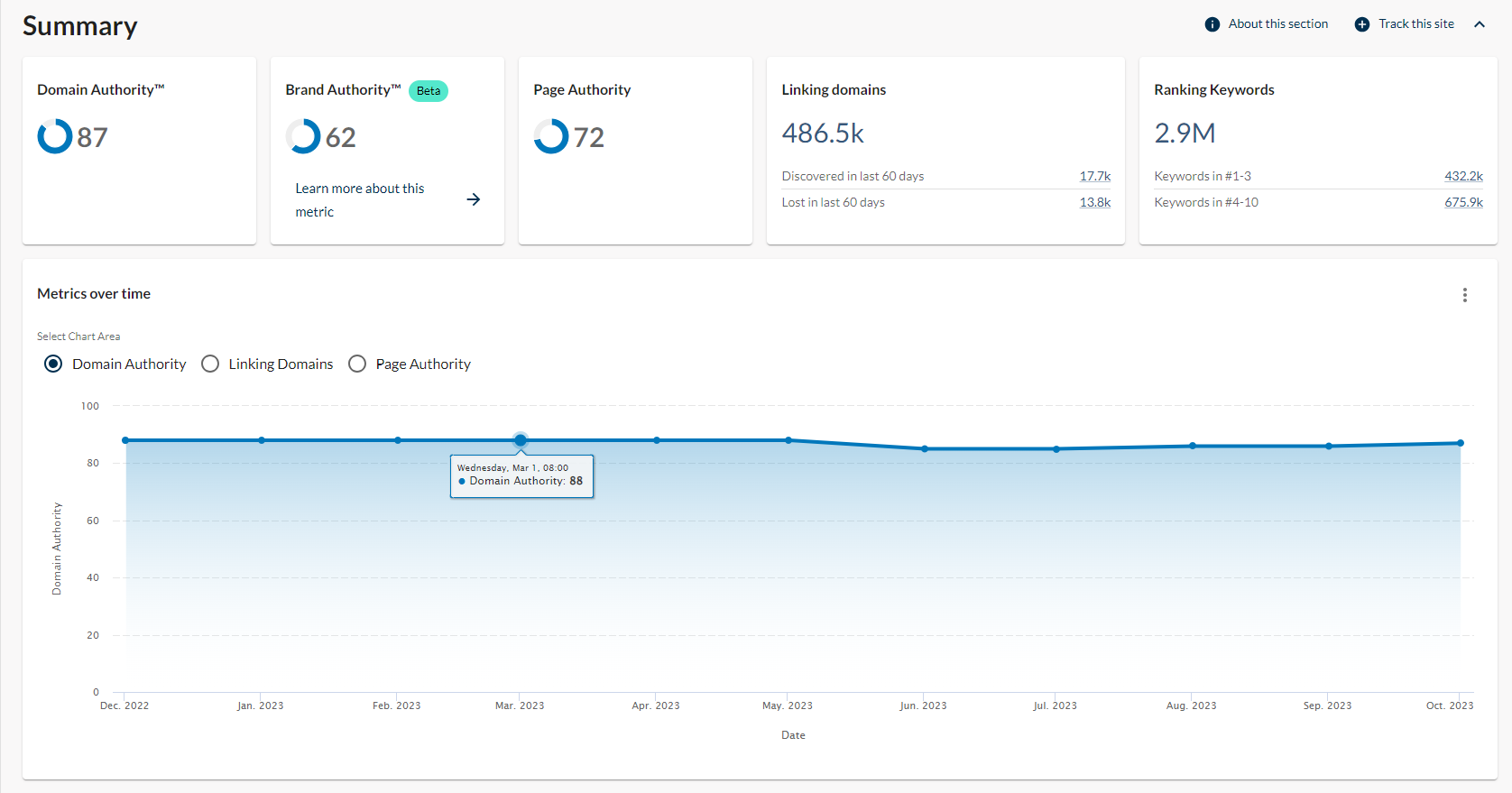
Moz Pro is another all-in-one SEO tool that can be used to measure your SEO score, generate reports, and track growth. From site audit to rank tracking to keyword research to backlink analysis, Moz has everything to help level up your SEO.
This is what you can expect from Moz’s Free Domain SEO Metrics –
| Package | Price |
| Free Trial | 30 days free |
| Standard | $99/ month |
| Medium | $149/ month |
| Large | $249/ month |
| Premium | $599 / month |
Ahrefs is another advanced SEO toolset available with a wide range of features to help with various aspects of SEO, competitive analysis, and content marketing.
One of the most popular features of Ahrefs Seo scoring tool is the ability to schedule regular SEO checks to keep track of your site’s health regularly.
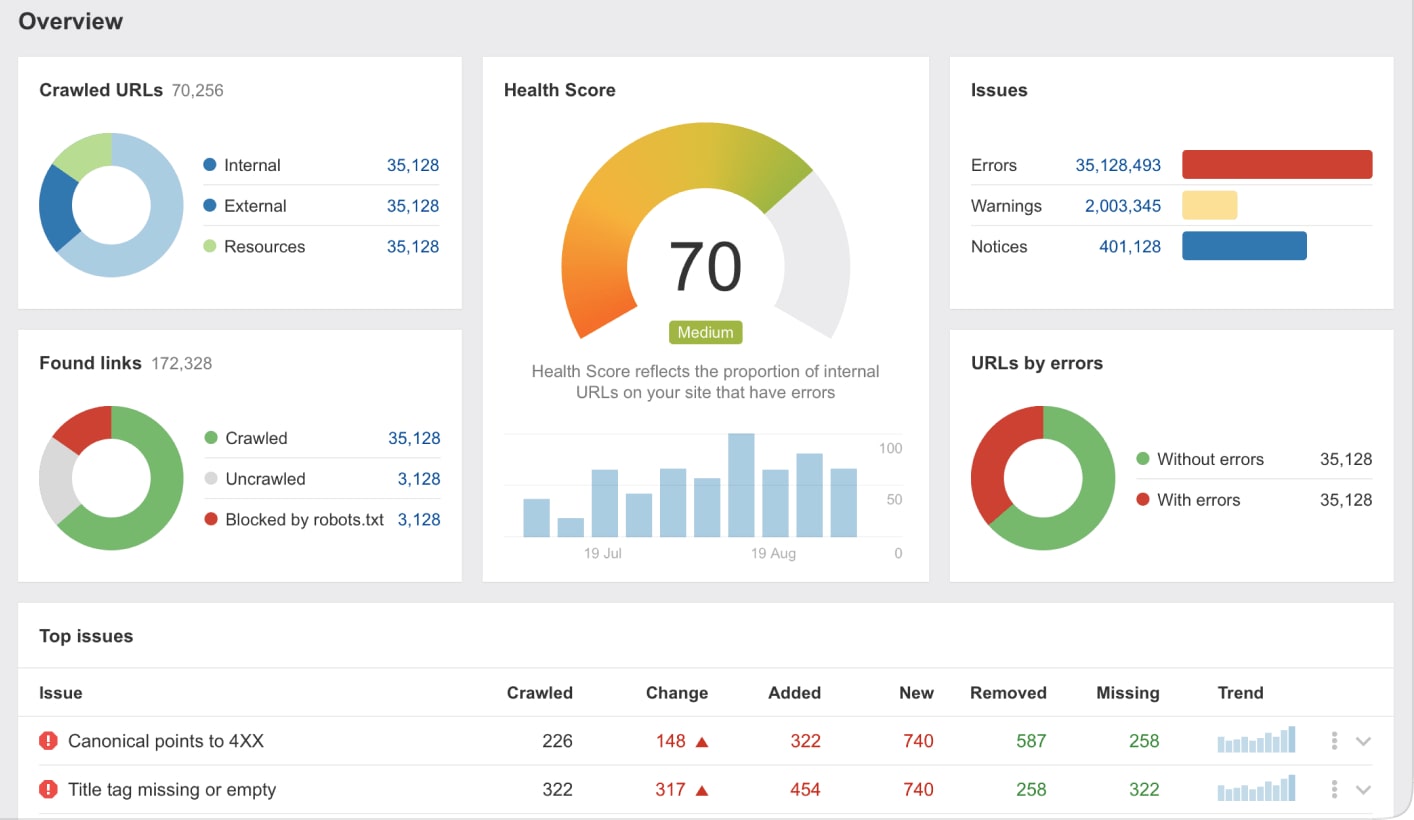
The primary features that Ahrefs SEO checker uses are –
| Package | Price |
| 7 day free trial | $7 |
| Lite | $99 per month |
| Standard | $179 per month |
| Advanced | $399 per month |
| Agency | $999 per month |
Google Search Console, formerly known as Google Webmaster Tools, is a free web service provided by Google for webmasters and website owners. There are a lot of tools and reports to help website owners monitor, manage, and optimize the way their websites appear in Google’s search results.
Google Search Console is a valuable resource for understanding how Google’s search engine interacts with your website, and it provides insights and data related to your site’s performance in Google Search.
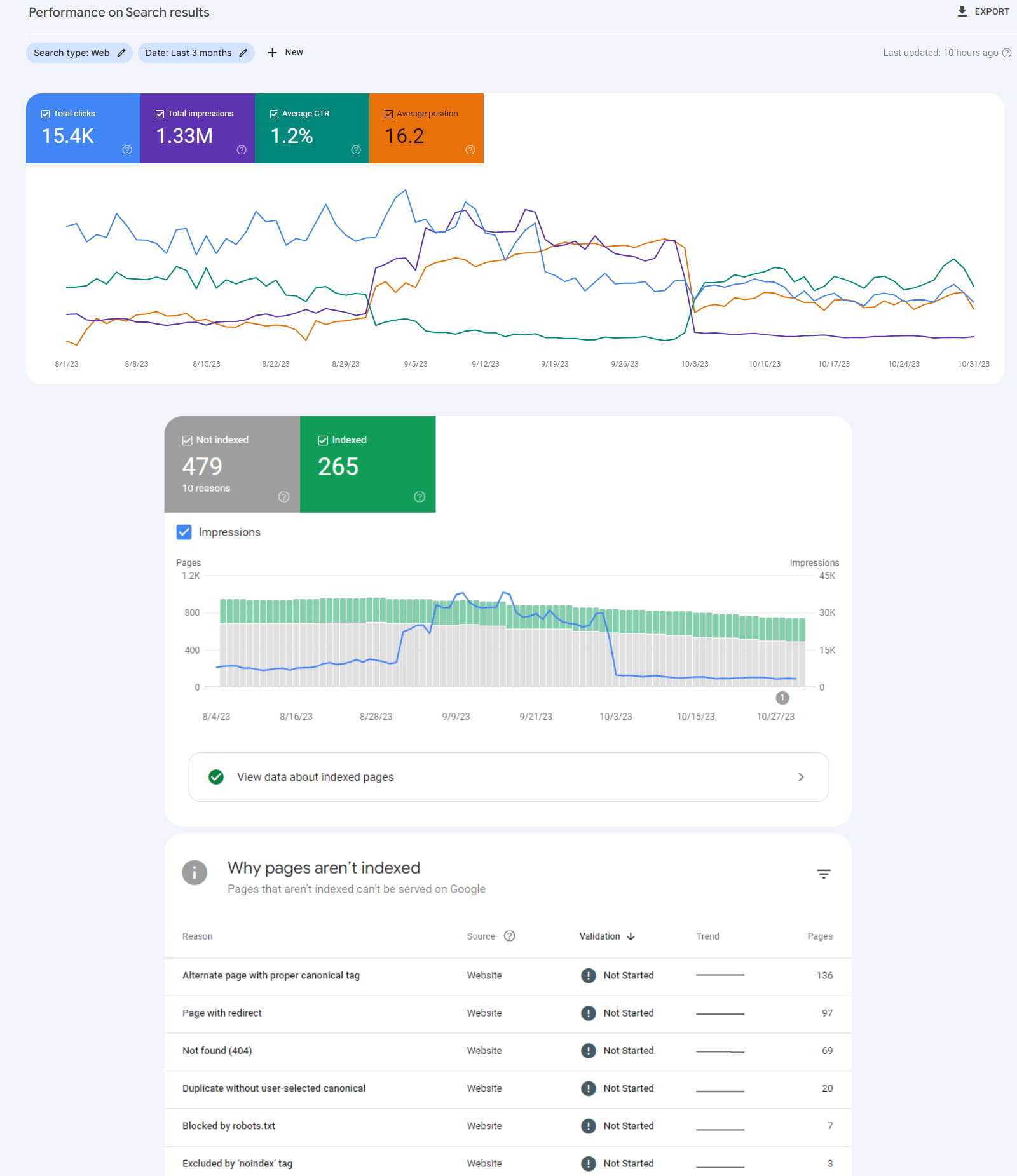
Some elements that Google Search Console can help you monitor and measure-
Hubspot’s Website Grader Tool can help you measure the quality of your website and SEO efforts. They use various metrics to generate a report card for you. Some important metrics used to measure the score are-
| Package | Price |
| Starter plan | $45 per month |
| Professional | $800 per month |
| Enterprise | $3,200 per month |
Hubspot’s website grader tool is absolutely free, but they have paid plans as well that offer many more features, such as-
a) Keywords
The words or phrases used to search for a query in Google or other search engines are known as keywords. You should target specific keywords related to your product or services. Sometimes they are single words and sometimes they are phrases. For example, Amazon will try to target keywords like “e-commerce” and ‘ecommerce business’
Search engines try to show results which are most relevant to the user’s query. They measure this using keywords. Google has a complex algorithm used to measure relevancy. One of the ways they do this is by calculating the frequency, location, and use of keywords in the text. This helps them understand if the webpage is what the user is searching for.
You need to find the right keywords for each page on your website. The keywords you choose should be relevant and define your webpages. Every page needs a primary keyword and a few secondary keywords. Do keyword research by looking at search intent, volume and competition for words and phrases related to a topic.
The primary keyword needs to naturally appear in meta title tags, meta descriptions, headings, alt tags, and a few times in the body. Make sure the keyword feels organic in the text as keyword stuffing often results in negative scoring.
b) Content Quality
According to Google, their goal is to provide quality and reliable content with an intention to benefit people. They have their own guidelines that you can use to measure the quality of your content.
Here are some questions you can ask yourself:
c) Meta Title Tags
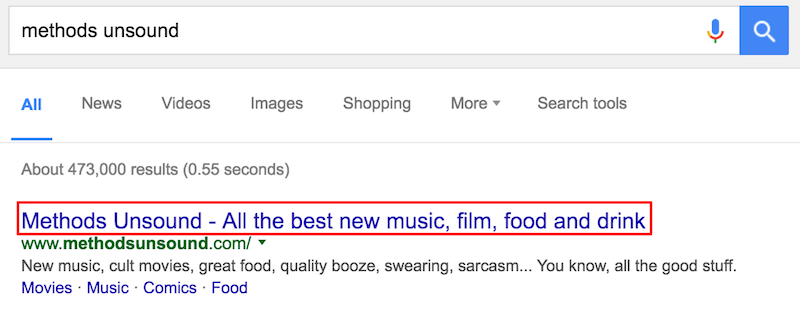
Meta title tags appear under the URL and above the meta description in the search engine results pages (SERP). Meta title tags should include attractive and catchy keywords that are optimized for search engines.
Your title tags should not be more than 60 characters because Google will rewrite it themselves if it exceeds that limit. You should also include your primary keyword and try to catch the user’s search intent in a catchy manner. Remember, the meta title tag needs to be relevant to the content because inaccurate titles will increase your bounce rates.
d) Internal Linking
Internal links have a major impact on an SEO score because they distribute link equity around the website and help optimize anchor texts to the next page. The anchor texts should be optimized with your primary keywords and other internal links should be placed wisely.
e) User experience (UX)
User experience may not have the top priority when measuring your SEO Score but Google considers this when ranking a website. UX mainly revolves around:
a) Backlinks
Google uses backlinks to measure the reliability and trustworthiness of a website. Quality inbound links from relevant and high-DA sites (Domain Authority) help improve your online reputation as well.
Backlinks are another crucial factor when calculating an SEO score. In fact, Google considers it one of top 3 ranking factors.
So, how can you improve your backlink profile?
b) Social Signals

Social media has now become an important aspect of off-page SEO. Google displays links to social platforms on Google Business profiles. When your social media campaign is successful, you earn more followers and awareness that leads to increased web traffic.
Social signals are a measure of your brand’s performance across different online channels. They are calculated using all the linking, mentions and comments regarding your business on different social media platforms.
c) Mentions and citations
Businesses can build a valuable citation profile in both structured and unstructured ways. You can earn structured citations through listing your business on platforms like Google, Apple Maps, and Yelp, while unstructured citations can be gained by posting on blog and news sites.
On the other hand, your brand mentions occur in articles, social media, and forums. It’s hard to tell how much mentions and citations matter a positive SEO score, but they are still considered in the scoring process.
Google’s guidelines have confirmed that they monitor mentions, understand their intent and use it as a way to determine rankings. Unfortunately, there isn’t much control over who mentions you and when they do it. Social media influencers, reviews, guest posting and quality content are some great ways to increase your mentions and citations.
a) Mobile Optimization
Google indexes mobile friendly websites first. As a result, all the content of your website should be mobile-friendly. A mobile-friendly test determines the speed of your website across various mobile devices. This is measured using:
b) Website Speed
The load time is the time taken for a browser to request information from a server and then load all of it. According to Think with Google, the bounce rate increases by 32% if the load time of a page goes from 1 second to 3 seconds.
c) HTTPS

Hypertext Transfer Protocol Secure (HTTPS) is used to get a safe connection between a browser and a server. Personal information from the user like credit card details is protected with a Secure Socket Layer (SSL) and the data is prevented from getting hacked.
Many website hosting sites offer SSL certificates. Moving from HTTP to HTTPS would mean you have to redirect your old HTTP website URL to the new secured HTTPS site. It will redirect users that visit the old site to the new one.
d) Robots.txt and Sitemap
Sitemaps or Robots.txt files provide Google instructions about what parts of the page are accessible. They are used to block duplicate pages and hide important resources from Google crawlers like PDFs, images and videos.
e) Structured data
Different elements of a webpage are labeled using structured data. It helps Google understand the videos, reviews and products in a page for ranking and indexing purposes.
a) Optimizing meta title tags and meta descriptions
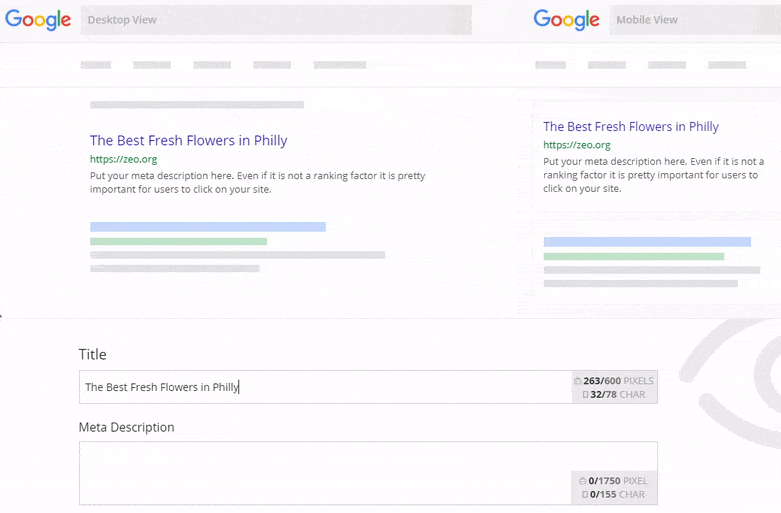
Meta title tags and meta descriptions not only provide readers with a summary of your content but also help Google decide the relevance of your content to the readers query. This is why optimizing meta titles tags and meta descriptions is so important.
You should always try to include your primary keywords there and not exceed the word limit set by search engine guidelines.
b) Optimizing alt text in images
Image alt texts are used by Google to understand the images you post. Since their crawlers don’t process images the same way we do, alt texts are necessary to help make them understand your images and their context and relevance to the content.
Apart from assisting Google’s crawlers, accurate alt texts also help human readers understand the image by reading its description when an image fails to load or takes time to load.
c) Keyword optimization
The biggest indicator Google uses to decide if your content is relevant is keywords. As said before, optimizing keywords is so important to improve your SEO.
Keyword research needs to be done every time before a content is developed to make sure you are choosing the most valuable keywords available for that topic. If you have to optimize the keywords in an already published content, you can try the following techniques:
d) Content quality
If you are not creating and publishing quality content, there is no way for you to improve your ranking. Here are some ways to improve your content SEO score:
Google encourages you to post different types and forms of content and not just stick with traditional blog posts. Some examples are:
Different types of content will keep your website relevant among different types of audience and give you the opportunity to publish and stay active on various platforms. For example, if you create a podcast for your website, you can post it on your YouTube channel.
e) Strong internal link profile
Internal links help visitors navigate your site and discover relevant content. Improving your internal link profile will also ensure a better SEO score over time as metrics like time spent on the website and the number of pages visited will increase.
f) Optimize core web vitals
Google uses Core Web Vitals to measure user experience (UX) for a website. It is also a key factor in a high SEO score. They are measured using speed metrics like:
To optimize for Core web vitals and receive a positive SEO score, you should have at least-
The Core Web Vitals for your website can be checked using Google Search Console.
a) Backlink Profile
Backlinks from high-authority websites will signal Google that your website is also authoritative and reward you with a positive SEO score.
b) Authority
As you know by now, you need links from websites with high authority. That does not mean you should always avoid links from low authority websites but they won’t help improve your SEO score because they aren’t that valuable.
c) Social signals
High social media activity will tell Google that you are a popular website and gaining links from popular social platforms will help with your SEO score. Other than that, creating an engaging social media presence will help bring steady traffic to your website.
Brands can work with popular social media content creators and bloggers to help promote their products and services. This is an easy way to get a new audience as influencers have a large follower base on different platforms.
Being active on forum sites will help improve your social signals and keep you relevant in discussions on topics that you specialize in. This is one of the unique qualities of forums that gives you the opportunity to discuss with potential customers. This is a great way to start building trust and a relationship.
You can use large forum sites like Quora or Reddit but also focus on niche forums regarding topics you specialize in.
d) Reviews
Another proven way of building trust is from reviews left by previous customers. Reviews are also a key factor in Google rankings as well as a high SEO score. Google advises you to reply to all the reviews you get – both the positive and the negative ones. It is a way of showing you value customer feedback.
a) HTTPS
Since 2014, Google has considered HTTPS a strong ranking factor.
![]()
The lock icon indicates your site is secured and uses HTTPS.

The Not Secure sign indicates your site is not secured because it doesn’t have this certification. In that case, you will need the SSL certificate, which is used to authenticate a website’s identity and establish safe connections.
b) Page speed optimization
Google has its own tool to check your page speed called PageSpeed Insights. Here are some ways you can improve the speed of your website:
Minification is the process of removing unnecessary whitespace and characters from the code to reduce the size of files and improve the load time taken by your site.
The biggest files on web pages are generally the images. Reducing the size of the files will help improve their loading times. There are tools that can help optimize images and compress them to your desired size.
Content Distribution Networks (CDN) are used to store copies of websites on many servers across the globe. They help connect visitors to the closest server to reduce the distance and time taken for requested files to travel.
c) Mobile Optimization
Google Search Console has a feature known as “mobile usability” that is used to check a website’s mobile optimization. Google also has a mobile friendly test tool.
d) Structured Data
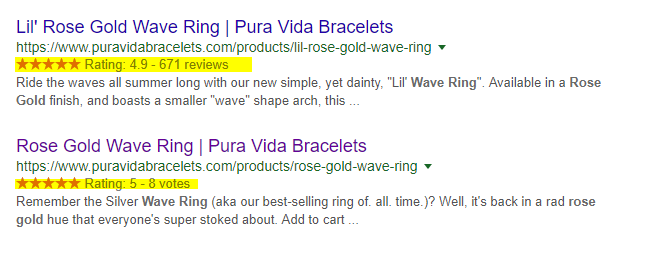
Google uses structured data to understand the web content. If you add the correct structured data markup code, you can help your pages win rich snippets.
Snippets offer extra information under the meta titles and meta descriptions. They help with your click through rate (CTR) and make your page unique in SERPs.
Google has its own guideline for structured data that can help you out.
e) Remove duplicate content
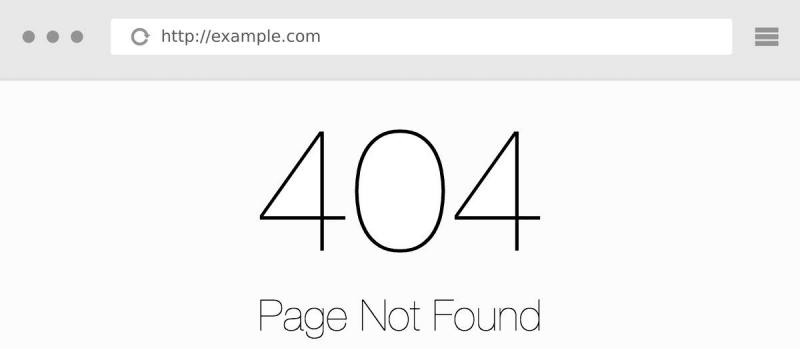
According to Google, there is no penalty for duplicate content but it can cause many other technical issues such as waste of crawl budget or unwanted URLs.
This is why SEO audits are important as they help identify and eliminate duplicate content and other technical issues.
f) Fix broken pages
Users get a negative browsing experience when they come across a broken page on your site. Backlinks for those pages are also wasted because they direct to a missing resource.
There are two ways to fix broken pages:
i) Redirect old posts to other pages that are relevant using links
ii) Reinstate the pages that were deleted by accident
Once the broken pages are fixed, you have to update and remove the inaccurate internal links that point to your redirect or removed pages.
In fact, maintaining a high SEO score is much harder than getting a high score since SEO is always changing and you need to stay up to date constantly.
Here are some ways to keep your high SEO score:
Content quality is a major criterion when calculating SEO scores. You need to add different types of media to your content such as images and videos to enhance user experience and leverage linking opportunities. Visually enhancing your website will also help reduce bounce rates and increase engagement.
Almost 2 million blogs are posted everyday. If your site takes a long time to load, there are plenty of alternatives out there. There are easy ways to improve web page speeds that we have discussed in detail before in the article. Let’s recap some of them-
Google’s PageSpeed Insights tool can also help you improve and maintain optimal page speed and loading time.
You should always focus on the quality of your backlink rather than the quantity. Google prefers their users to have access to relevant content and websites. It has its way of monitoring link spams so the external pages you link to should provide relevant content to the users. Having a diverse backlink profile with high authority links is more valuable in SEO scores and SERP rankings.
Quality backlinks from popular social media networks will help your SEO score as it indicates the relevance of your website. High social media engagement will also boost your visibility and ranking over the long haul.
We believe you have got a clear answer to the question: what is an SEO score?
If you can improve the technical, on-page and off-page elements of your website, you will be able to gain a top SEO score. Don’t forget to use a compilation of the SEO checkers to help you calculate your score and gain important insights about your site.
Q. Why are SEO scores important?
Ans. Your website’s SEO score will give you an overview of the website’s health. It will also help you track and measure your SEO efforts.
Q. What is considered a good SEO score?
Ans. A good SEO score will range from 80 to 100. Websites that score above 90 are among the top 10% websites in the world. If you get a high SEO score, you should arrange regular site audits to maintain it.
Q. Are SEO scores a factor in Google’s Ranking?
Ans. No, Google doesn’t take any 3rd party data when calculating search engine rankings. Even Though your SEO score and Google rankings are measured using similar factors, Google uses its own algorithm to make the calculations.
Increasing SEO scores won’t always result in improved Google rankings, but since they use similar metrics it is an important tool that you can use.